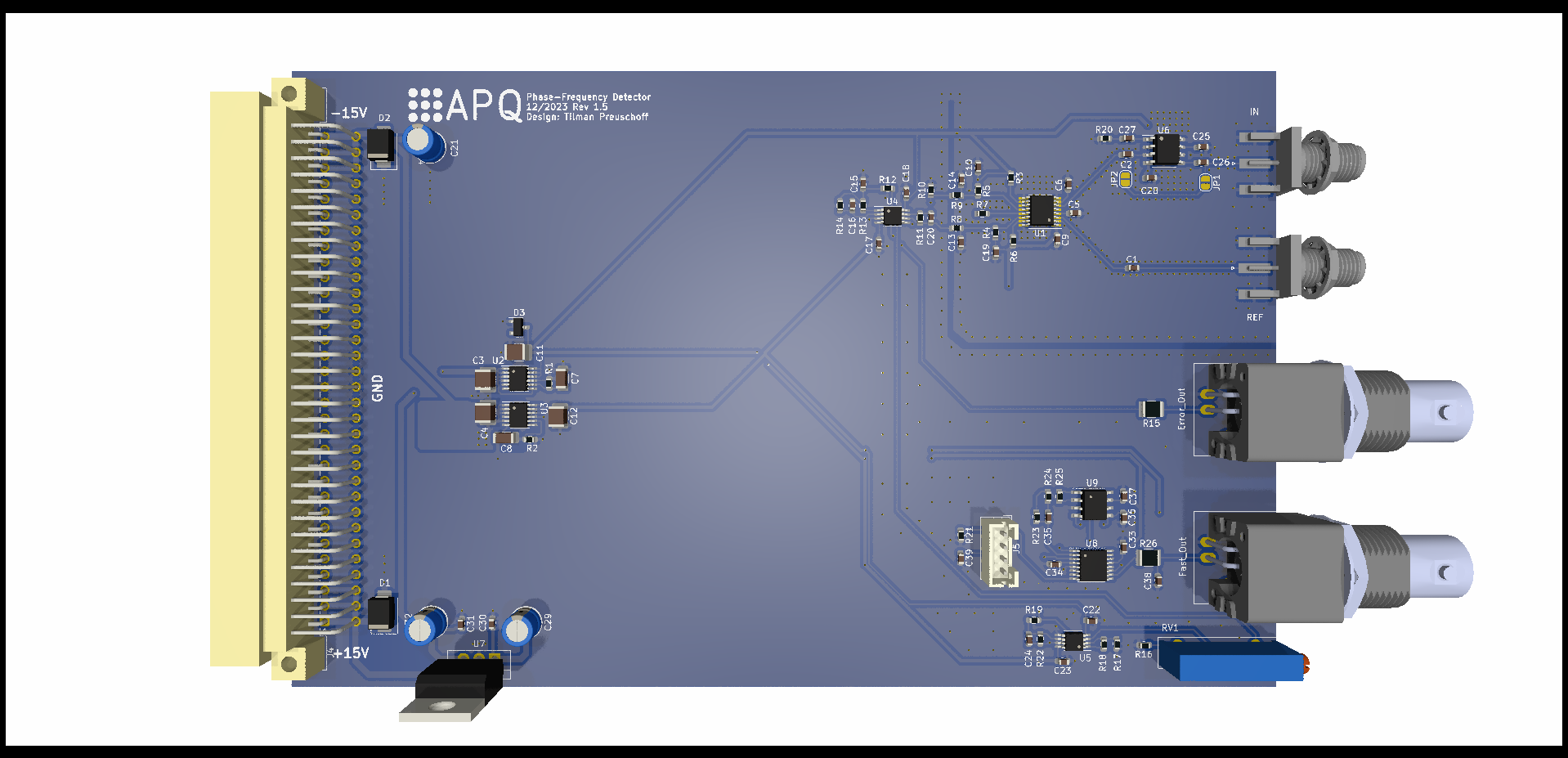This repository contains the KiCad design files of a phase-frequency detector designed for application in optical phase-locked loops (OPLL). The detector compares a beat-note signal with a reference signal and creates an output signal proportional to the phase deviation of the beat-note from the reference. Optionally, the beat-note input can be equipped with a divider (default: 4) for a larger input-frequency range. The module also comprises a fast analog proportional-derivative controller for high-bandwidth feedback.
Features
- Input frequency range
- 10 MHz to 1.3 GHz without divider
- 500 MHz to 5.2 GHz with divider (HMC365)
- Input signal level: -10 dBm to +10 dBm
- Error signal output:
- Bandwidth 4 MHz (2. order filter)
- Output voltage ±1 V max. (high-Z)
- PD controller
- Output voltage ±5 V max. (high-Z)
- Level adjustable between 4% and 100% via frontpanel trim pot
- Gain sign adjustable via frontpanel switch
- Hardware adjustable corner-frequency (default: 0.8 MHz) and gain limit (default: 32 dB)
The PCB is placed in a standard 19''-rack mount unit. Use the switch breakout board for connecting the frontpanel switch of the PD controller. See frontpanel/ folder for drawings and frontpanel artwork.
The design files can be found on the releases page and include the following resources:
- Schematics as a PDF
- Gerber files
- Pick & place position files
- Bill of materials as a CSV file and also as an interactive HTML version
The latest revision of those files can be found here.
T. Preuschoff, Laser Technologies for Applications in Quantum Information Science, Ph.D. thesis, TU Darmstadt, 2023, https://tuprints.ulb.tu-darmstadt.de/23242/
- Dual power supply
- +15 V (0.35 A typ.)
- - 15 V (0.15 A typ.)
- 19-inch rack mount (e.g. Fischer Elektronik BGT384)
This work is released under the CERN OHL v.1.2 See www.ohwr.org/licenses/cern-ohl/v1.2 or the included LICENSE file for more information.

